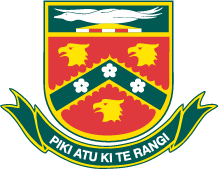Learning Support
Support for neurodiverse learning and students with special educational needs.
Manurewa High School is committed to meeting the needs of all our learners, in partnership with parents/caregivers/whaanau and the wider school community. Assessment informs our planning and guides educational decisions. We collaborate with students, parents/caregivers/whaanau, and professional specialists and resource teachers to develop responsive programmes based on developmental stage, previous learning and experience, culture and personal interests, and aspirations. We provide flexible learning environments, expert teachers, individually tailored learning programmes, one-to-one and small group teaching, teacher aide support, mainstream and specialist class options for ORS funded students, and transition and work experience programmes.
At Manurewa High School we work with students and their whaanau to meet student needs by adapting programmes and learning environments, and providing specialised equipment or materials. Therapists work in partnership with student, whaanau and school to support the individual in the learning context. These include:
- Occupational Therapists
- Physiotherapists
- Speech and Language Therapists
- Mobility & Orientation Specialists
- Transition advisors
- Resource teachers
- Educational Psychologists
N.B. Students with ORS funding can access any of the following specialists (list is not definitive) according the students particular needs.
Occupational Therapists:
- within the education sector work with young people, their teachers and families, addressing physical, intellectual, social and emotional challenges that impact participation and achievement at school. Services address:
- Sleep patterns & managing energy levels
- Coping with the classroom environment
- Accessing assistive technology and devices
- Handwriting and typing skills
- Time management and self-organisation
- Developing work skills
- Adapting learning for special physical or intellectual abilities
- Assessment of life skills and functioning at school
Educational Psychologists:
- work closely with parents/caregivers/whaanau, teachers and other specialists across a range of educational settings (early childhood and school) to help children and young people with special education needs learn and develop
- develop individualised programmes for learners to overcome the challenges they face
- apply psychological knowledge and behaviour and learning theory to assist children and young people as well as the adults around them.
Physiotherapists within the education sector:
- work with young people and their whaanau and teaching team to assist with physical needs while at school. Some of the many areas that the physiotherapy team work include programmes to assist balance and coordination, vestibular and respiratory systems, strengthening exercises, hydrotherapy/water therapy.
- liaise with specialists including rehabilitation specialists, orthopaedic specialists, neurologists, and paediatricians.
- apply for and monitor equipment needs, for example standing and walking frames and some physiotherapists work with wheelchairs as well.
Resource Teachers of the Deaf:
- work collaboratively with parents/caregivers/whaanau, teachers and other specialists to support the language, learning and social needs of students who are deaf or hard of hearing
- develop language, communication and cultural skills and knowledge in the context of the New Zealand Curriculum
- use a variety of specialist and general assessment tools and strategies, to identify specific needs and set achievable goals › prepare education programmes and check and maintain hearing technology
- collaborate with a range of professionals from education, health and community organisations, and agencies.
Resource Teachers: Learning and Behaviour:
- work with Years 1-10 school students with learning and behaviour challenges (who are not ORS funded)
- support and up-skill teachers to better meet the needs of students within an inclusive education system
- develop professional practice by networking and supporting school policy development
- collaborate with a range of people including parents/caregivers/whaanau, schools, Ministry of Education staff and Special Education Needs Coordinators (SENCO).
Resource Teachers: Vision:
- work in partnership with parents/caregivers/whaanau, communities, teachers and other specialists to help provide a quality education for students who are blind, deafblind or have low vision
- work with students and their whaanau from birth to the end of compulsory education including making the transition to life after school
- adapt learning environments, teaching and learning approaches and the regular curriculum. Ensure access to accessible format materials
- advocate for students who are blind, deafblind or have low vision, and their parents/caregivers/whaanau.
Speech & Language Therapists:
- Work with students on receptive language – their understanding of everyday language and concepts;
- Expressive language – how they express their thoughts and feelings;
- Some students may struggle with verbal communication and may need an alternative way to express themselves;
- Phonology and articulation – how the sounds in a language are produced;
- Social skills – the socially appropriate way of using language;
- Feeding or swallowing difficulties.
- Communication goals are aimed at improving or maintaining functional communication for everyday living and social interaction. Goals are worked on in individual sessions, small groups, or strategies for classroom staff to use.
If you would like to arrange a visit, please contact our school: 09 269 0690 [email protected]
 Manurewa High School Te Kura Tuarua o Manurewa
Manurewa High School Te Kura Tuarua o Manurewa